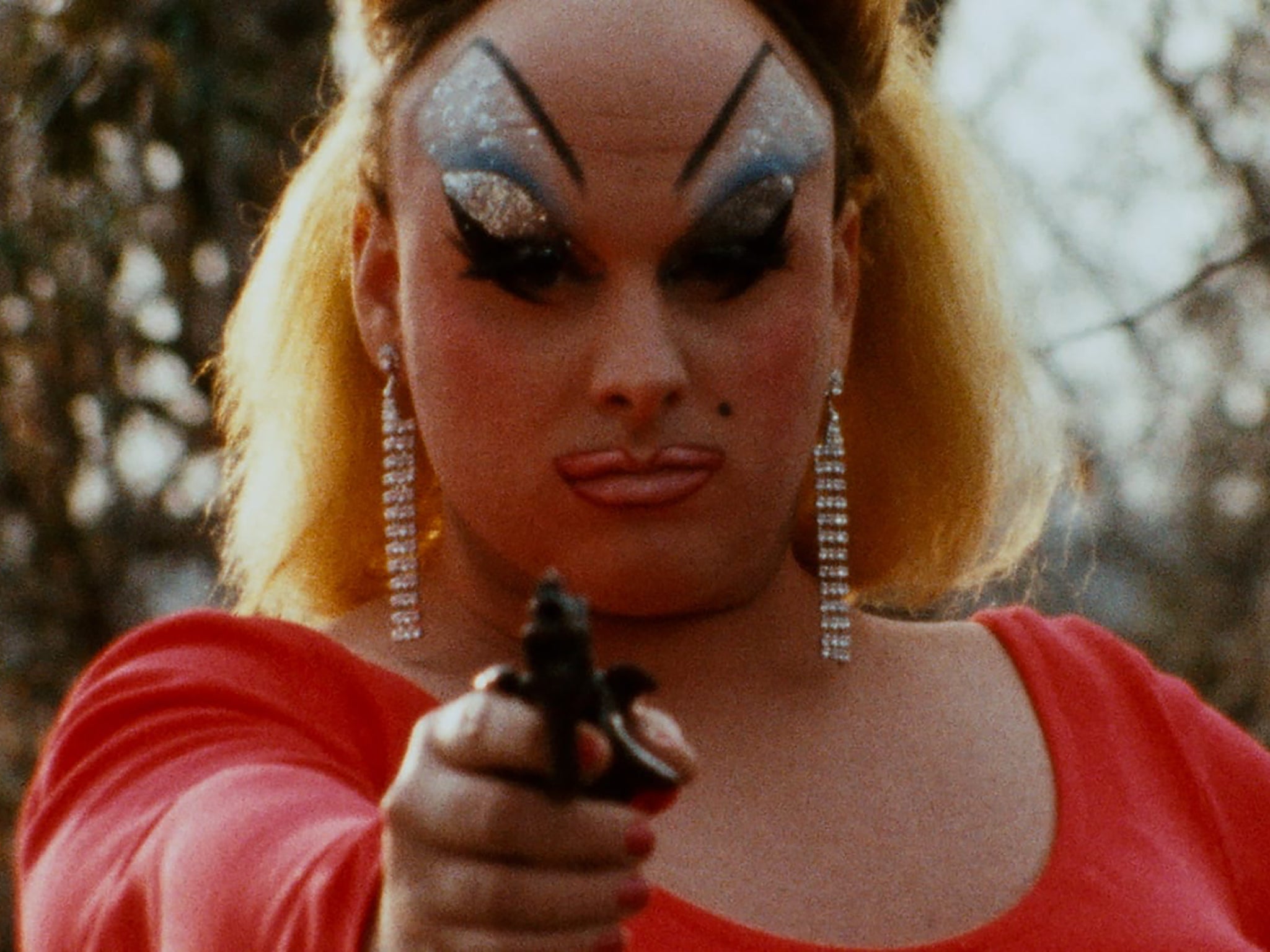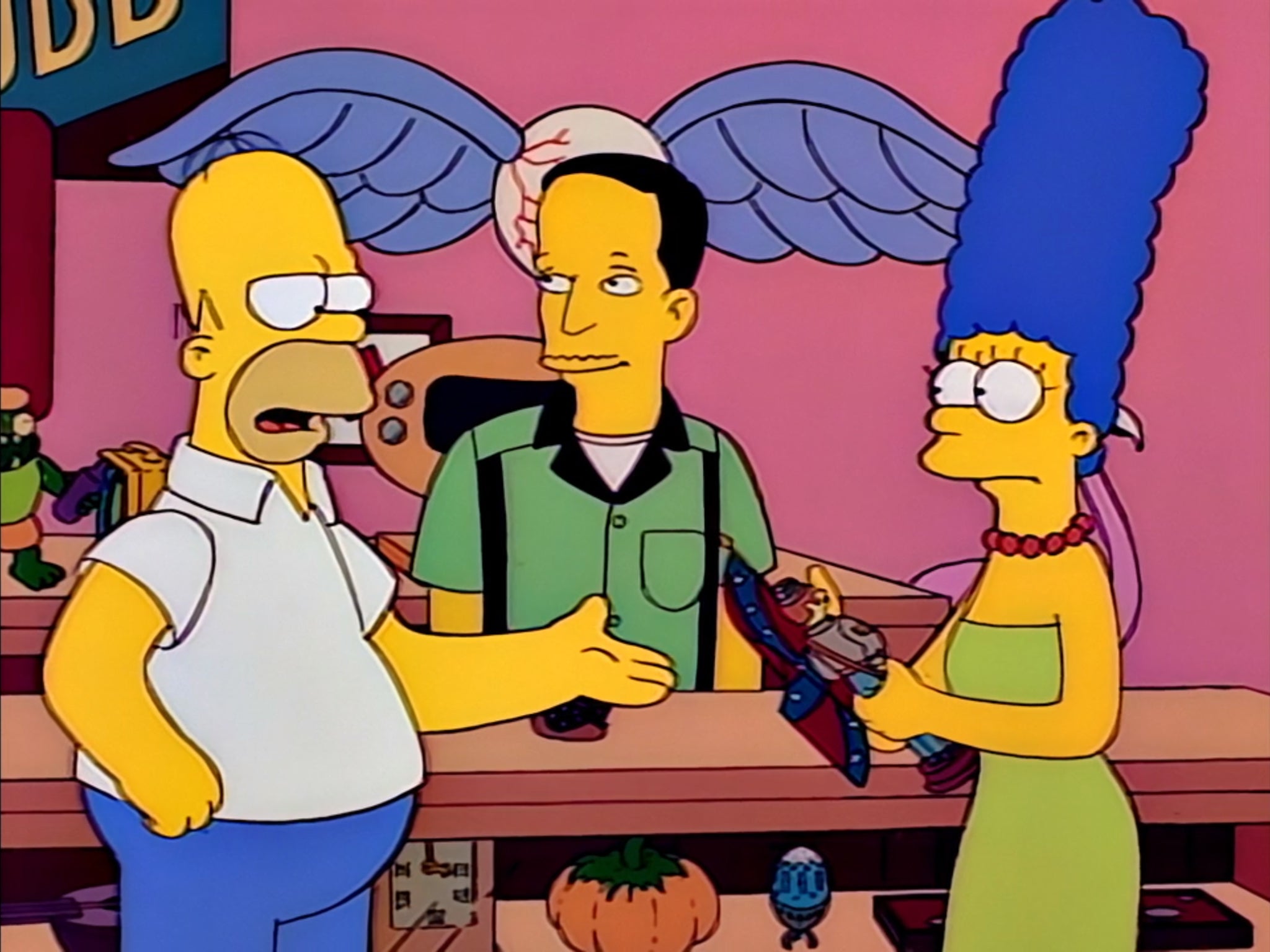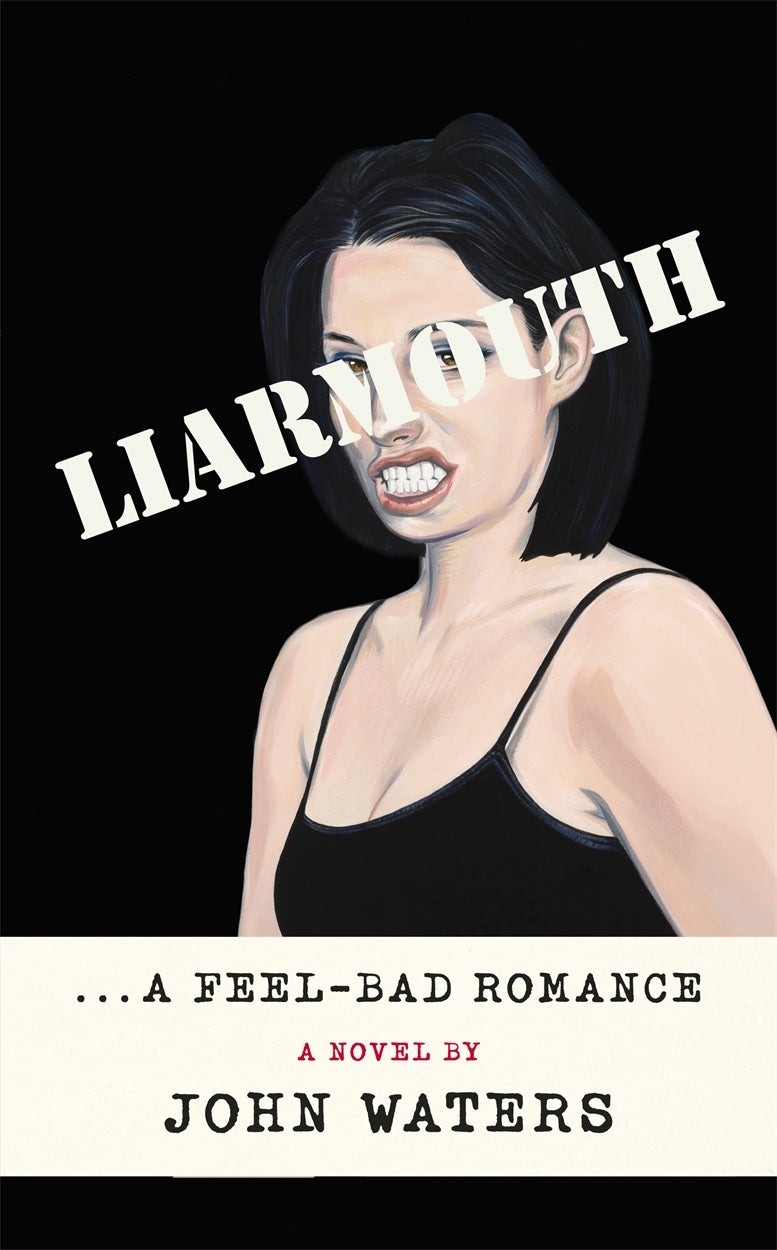John Waters: ‘I’m tired of being respectably gay’
As the legendary director’s exercise in poor taste ‘Pink Flamingos’ turns 50, the Pope of Trash talks to Kevin E G Perry about his preferred royal pronouns, groundbreaking ‘Simpsons’ appearance and why his films still have the power to shock


Your support helps us to tell the story
This election is still a dead heat, according to most polls. In a fight with such wafer-thin margins, we need reporters on the ground talking to the people Trump and Harris are courting. Your support allows us to keep sending journalists to the story.
The Independent is trusted by 27 million Americans from across the entire political spectrum every month. Unlike many other quality news outlets, we choose not to lock you out of our reporting and analysis with paywalls. But quality journalism must still be paid for.
Help us keep bring these critical stories to light. Your support makes all the difference.
It’s the first day of Pride Month when I reach John Waters by phone at his summer home in Provincetown, Massachusetts, so it feels remiss not to ask the 76-year-old how he plans to celebrate. “I’m just gonna blow as many people as possible,” the cult filmmaker, stand-up and newly-minted novelist tells me, audibly smirking. He interrupts himself with a knowing laugh. “I told my office I was going to say that. They said: ‘You can’t say that!’ But it’s just too hard for me not to, because you’re supposed to give such a respectable answer and I’m tired of being respectably gay.”
Respectability has never been high on Waters’ agenda. Christened “The Pope of Trash” by Naked Lunch author William Burroughs, Waters made his name in the early Seventies with exuberantly transgressive independent films like 1972’s Pink Flamingos, a depraved tale of incest and underground baby mills starring drag queen Divine as a criminal living under the name Babs Johnson and dubbed “the filthiest person alive”. In a sign that respectability has come for Waters whether he likes it or not, the film will soon mark its 50th anniversary by being re-released with new bonus extras as part of the prestigious Criterion Collection. Even more remarkably, last year Pink Flamingos was selected for preservation by the Library of Congress as being “culturally, historically, or aesthetically significant”. “An irony on top of all ironies,” says Waters. “But a great compliment.”
Half a century on, Pink Flamingos retains the same ability to shock that once saw it banned in Australia and Switzerland. It is surely the only film in the Library of Congress to climax with a scene in which its star eats a freshly produced and unmistakably real dog turd. Waters conceived of the gross-out finale before writing the rest of the script. “I knew that was the end,” he says. “I knew that it was in the spirit of [1962 Italian shockumentary] Mondo Cane, and in the spirit of Jackass before it ever even happened, and in the spirit of the punk world that was right around the corner. After [1972 porn film] Deep Throat had become legal, it was a joke on ‘what’s left that you can’t do?’ And it was a publicity stunt that’s working to this day.”
Divine, ever the professional, didn’t take much convincing. “I said: ‘Will you eat dog sh**?’ He said: ‘Sure,’” recalls Waters of his friend and frequent collaborator, who passed away in 1988 at the age of 42. “We were terrorists against taste. It was a radical time, and it was group madness in a creative way.” Waters made his early films with a tight-knit group of cast and crew known as the Dreamlanders. “We used to take LSD a lot,” says Waters. “I didn’t write on it, but I think it certainly led to some of my writings.” He’d first met Divine, born Glenn Milstead, at high school in Baltimore. “His family moved five houses up the street from my family,” he remembers. “They ran a nursery school for children and Divine was their only child, which I’m not saying was the best advertisement.”
Even at an early age, Waters saw himself as an artist. “I knew I would be in show business,” he says. “I had a puppeteer career when I was 12 years old. My parents built me a stage in my house where I put on very self-indulgent shows for my poor aunt. What child has a stage?!” He saw potential in Divine from the first time he spotted him waiting for the school bus. “He was very un-Divineish,” recalls Waters. “He was an overweight nerd that got beat up in school every day, but I saw my father shudder when he saw him and I knew that there was a certain power there waiting to be released. I think I did release that power and gave him an outlet for the anger and rage that he must have felt from being bullied so much.”
Prior to the sh**-eating climax, Pink Flamingos also features a double shooting, a satire of America’s obscene gun culture. In the wake of high profile mass shootings in Texas and California, Waters says simply: “There’s no reason why anyone should have guns in America.” He adds that he’s only shot a gun once in his life. “A biker took me out into the woods and we shot machine guns,” he says. “It was a fun day, but it was more fun because I was with him than it was shooting a gun. It was a good date, but I never then wanted to go shoot a gun again. I have no desire to. I’d shoot myself with it accidentally if I had one.”
The original trailer for Pink Flamingos didn’t feature any footage from the film, and was instead comprised entirely of shocked reactions from people who’d just attended a screening. “You couldn’t put footage in it, you’d give away everything,” explains Waters. “It’s the same reason I called the film ‘an exercise in poor taste’ and the title was the very low key Pink Flamingos. Both those things downplayed how sensational it was.”
After years of being exposed to the worst the internet has to offer, it would be tempting to think audiences are now unshockable. Yet Waters points out with pride that the film has lost none of its power. “The ending of Pink Flamingos still works,” he says. “We won! Nobody’s gonna top it, because it’s joyous. It’s easy to be disgusting, but it’s really hard to be funny, witty and make people surprised at their ability to be shocked by anything anymore.”

Devotees of the film have been known to show their affection through imitation. “Somebody at [the Connecticut-based fan festival] Camp John Waters asked in front of a whole bunch of people if she could eat dog sh** in front of me,” remembers Waters. “She took a little specimen out and she did, and everybody applauded. I thought: ‘Well, that’s a nice thing for the bucket list, I guess?’ Who was I to deny her her dream?”

Watch Apple TV+ free for 7 days
New subscribers only. £8.99/mo. after free trial. Plan auto-renews until cancelled

Watch Apple TV+ free for 7 days
New subscribers only. £8.99/mo. after free trial. Plan auto-renews until cancelled
With a string of cult favourites including 1974’s Female Trouble and 1981’s Polyester under his belt, Waters made his commercial breakthrough in 1988 with Hairspray. The film starred a young Ricki Lake as teenage dancer Tracy Turnblad, who uses local TV fame to protest racial segregation. In 2002 it was adapted into a hit Broadway musical which in turn was made into a movie starring John Travolta as Turnblad’s mother, a role originated by Divine. “In a way, it’s much more perverse than Pink Flamingos because it snuck into middle America,” says Waters, who was surprised when his original film was given a PG rating. “Two men are singing love songs to each other in grade school during that musical right now. That’s much more radical than preaching to the converted, which maybe Pink Flamingos is.”
The success of Hairspray brought with it mainstream notoriety, and Waters has made, in his words, “more money from that than anything I did in my life”. It has however been criticised in some quarters for its supposed “white saviour” narrative. “Well, there were white people in Black Lives Matter. There were white people in the freedom fighters,” argues Waters. “It takes everybody to have a revolution. I’m not saying Hairspray was revolutionary, but it was about a revolutionary time that I remember very fondly. Ricki Lake was me in it, basically.”
They always ask you to pick a pronoun ... I want to be called ‘Your Majesty’
Waters made another incursion into middle America in 1997 when he appeared in classic The Simpsons episode “Homer’s Phobia”, playing the openly gay owner of a campy collectibles shop who helps Homer overcome his prejudice. “I thought: ‘If it’s good enough for Elizabeth Taylor!’” recalls Waters of being approached by the show a few years after Taylor voiced baby Maggie’s first word. “My favourite line is when [bartender] Moe says: ‘Entire steel industry’s gay.’ That really makes me laugh, coming from Baltimore.”
The episode, which aired several months before sitcom star Ellen DeGeneres made history by coming out, won both an Emmy and a GLAAD (Gay & Lesbian Alliance Against Defamation) Media Award and is now widely considered a landmark for positive gay representation on television. Waters says it’s a demonstration of how times have changed that “Homer’s Phobia” no longer seems as subversive. “The Simpsons episode wouldn’t be so shocking if it came out today,” he says. “All kids know what gay is and all kids know what trans is. I said in my last book, ‘there’s no such thing as a girl or a boy anymore. You can be anything!’ It’s very different to when I grew up. They always ask you to pick a pronoun, but the one I want isn’t on there: ‘The Royal We’. That’s the one I identify with. I don’t want to be called ‘them’, I want to be called ‘Your Majesty’.”

Speaking of royalty, Waters sends his wishes to the Queen for her Platinum Jubilee although he has little interest in the wider machinations of royalty. “I love the Queen, I am a complete, complete fan,” he says. “I remember I was in Australia on tour once and so was she. I always forget she rules Australia too. There she was, in a different pink pastel suit every day. She was working! The other ones I just don’t care about at all. When the Queen dies, I’ll probably never follow it again.”
In the years since the release of Waters’ last film, 2004’s A Dirty Shame, he has kept up a prodigious creative output. He’s written a series of nonfiction books, including 2010’s Role Models, which featured a chapter devoted to Leslie Van Houten, the Manson Family member who Waters befriended after interviewing her in 1985. This March, she was once again denied parole. “I’ve talked to her, and she has not given up and she’s as positive as ever and continues to lead a reformed life in prison,” says Waters. “She speaks so eloquently at every parole hearing about her sorrow and about how she doesn’t blame it on [Charles Manson] even. She’s lived for 50 years in prison, so I think it’s unfair today that they keep turning her down.”

Waters’ new book Liarmouth is his first novel. Published last month, it’s about a woman who steals suitcases from airport carousels that he bills as a “feel-bad romance”. After pointing out that novel writing is not such a departure for him (“All the movies are fiction”), Waters responds with delightful mockery when I ask whether writing a novel or a screenplay is more “fun”. “It’s not fun to write ever,” he says sternly, before doing a sarcastic impression of a maniac at a typewriter: “I’m not sitting there going: ‘Ahahaha! I’m so happy I think I’ll pick up this paper, la la la!’ I’m not insane.”
Along with the books, Waters also writes a continually evolving stand-up show, False Negative, which he is this week bringing to London’s Barbican. After years of lockdown, which Waters found “boring and endless”, he’s thrilled to be back in front of audiences. “I say to them: ‘Just think, this might be the last night you ever go out’,” he offers, that smirk back in his voice. These days he might be a celebrated novelist with fans clamouring to hear him speak, but the spectre of respectability hasn’t quite gotten to John Waters yet. “And now they’ve got monkeypox!” he adds with a sigh. “Oh great, just what I want! Boils on my balls. That’ll be nice for summer.”
‘Pink Flamingos’ is out on Criterion Collection Blu-ray, 25 July. ‘Liarmouth’ is out now. John Waters’ show ‘False Negative’ is at the Barbican Hall, London, 10 June.



Join our commenting forum
Join thought-provoking conversations, follow other Independent readers and see their replies
Comments